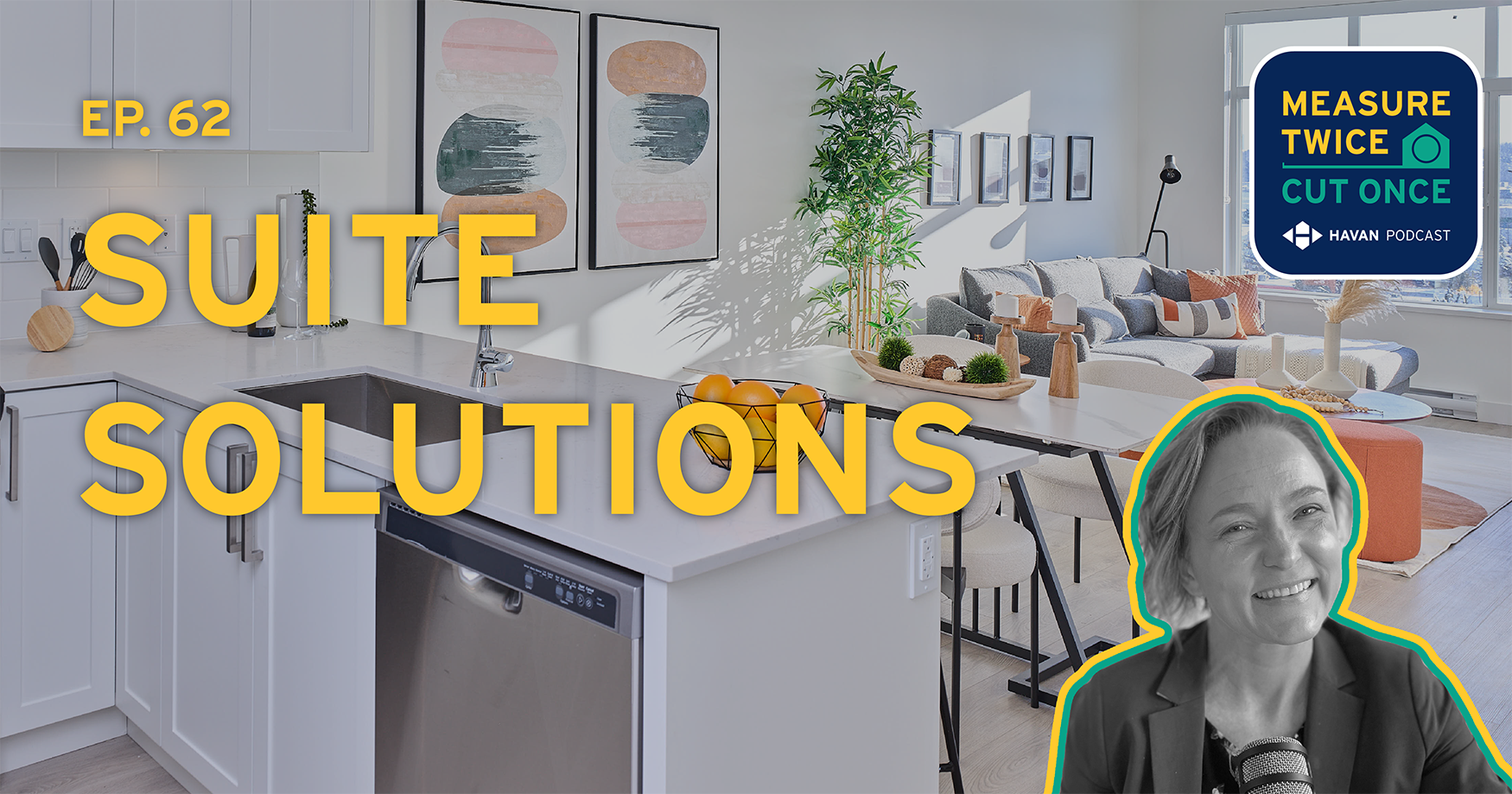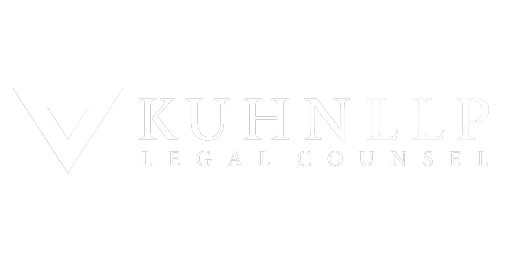Looking at housing through a holistic lens, Sara Goldvine from BC Housing dives into the concept of housing as a system. Providing an overview of BC Housing and solutions to address our housing crisis such as the BC Builds Program and the new Secondary Suite Incentive Program, benefits of builder licensing, and the 2-5-10 Home Warranty Program are also reviewed.
Podcast Partners
Check out FortisBC to learn about their latest rebates and information on renewable energy options.
BC Housing: We’re working with partners across industry to increase the supply of safe quality, accessible and affordable homes. The Secondary Suite Incentive Program will help provide new homes at affordable rental rates for British Columbians. Learn More – www.bchousing.org
Trail Appliances makes everyday life better. With the best selection in Western Canada, hassle-free delivery, and a price match guarantee, you’ll always get the best deal. At Trail Appliances, you’ll love buying an appliance as much as you’ll love using it.
Co-Host, podcast editor: Jennifer-Lee Gunson: jPod Creations
Co-Host, Mike Freedman, AI Technology & Design
Production: Rami Films
Distributed by Black Press Media: Today in BC.
About the Speaker
Sara Goldvine, Vice-President of Equity and Corporate Affairs, BC Housing
Sara brings broad experience from the public, non-profit, and private sectors to her role as VP of Equity and Corporate Affairs with BC Housing. She has a track record of effecting meaningful change in purpose-driven organizations through leadership roles with Coast Capital Savings, TVO, Toronto Community Housing, the Centre for Addiction and Mental Health, and the B.C. Legislature.
Outside of work, Sara serves on the Board of the Association of Neighbourhood Houses of BC, the NEXT Leaders Council with Business Council of B.C., the Distinction Awards Nominations Committee for the Metro Vancouver YWCA, the Board of Directors for the Cedar Cottage Food Network, the National Task Force on Equity, Diversity, and Inclusion with the Canadian Public Relations Society (CPRS), and is a co-founder of the Anti-Racism in Public Relations and Communications Management summit. She holds an Accredited in Public Relations (APR) designation, has a Master of Communications Management from McMaster University, and a Bachelor of Arts, Political Science from the University of British Columbia (Honours).

Listen and like for your chance to win a gas BBQ compliments of our Podcast Partner FortisBC.
Resources shared by Sara
Here's the Full Transcript of this Episode
Transcript: 62: Suite Solutions
JENNIFER-LEE:
Hey, Mike, we’re back with season seven of Haven’s podcast, Measure Twice, Cut Once.
MIKE:
Hi, Jennifer Lee, great to be back. And it’s been an exciting season. We’re looking at some really exciting trends and opportunities. We’re talking about building and renovating high performance homes, weighing up our energy choices. And there’s a lot of them out there and a lot of information to sift through. And of course, the components that make up the homes that we’re building today.
JENNIFER-LEE:
Yeah, and it’s also very interesting to learn about new housing legislation as well, as it definitely impacts homeowners and the potential to unlock home equity.
MIKE:
Well, I think it impacts all of us who live in this wonderful province we’re so lucky to call home. It impacts people like me who own homes who are looking to level up and people like you who are renters who are looking to enter the housing market. So, there’s a lot of really exciting stuff to go through, especially today.
JENNIFER-LEE:
Yeah, I’m really excited. Things are starting to look brighter on the horizon, Mike. New regulations are coming, and we have a stellar lineup of industry experts this season to walk us through the latest in the world of housing and the new provincial legislation.
MIKE:
Well, I’m ready to go. You ready to go?
JENNIFER-LEE:
I’m ready to go. And today we’re talking about one of my favorite topics, renting, which Mike, you’re going to have to deal with the kids having to rent very soon, some of them. So, I know this is a good topic for you as well. We’ve got Sarah Goldvine, vice president, equity and corporate affairs, BC housing to chat with us about BC housing, the secondary suite program, which I’m excited to know more about and new home warranty and more. Welcome, Sarah. Great to be here. Yeah, we’re excited. Like I said, Hot topic, of course, we all know, renting. But before we get into that, we want to know a little bit about how did you get to BC Housing?
SARA:
Well, I’ve been with BC Housing since 2019. And BC Housing has been going through significant changes over the last number of years really as part of the response to the housing crisis. But part of the reason why I joined BC Housing then was just because housing’s where it’s at. I’ve worked most of my career trying to really make change in systems to help make our communities better. And I’ve found that housing is the place where we can really do that. I worked for a housing provider in Toronto for quite a number of years. And when I was out here in BC, I moved back a few years ago. And when I got the call from BC Housing, I just I couldn’t say no, because BC Housing is for people that know housing. We know that housing operates as a system, right? You’ve got to ensure that homeowners have confidence in their homes. You’ve got to ensure that people that want to rent have places that they can afford and that people who don’t have access to housing are supported to be able to gain that access. And BC Housing operates right across that entire spectrum. So, it’s a really exciting place to be. That’s how I ended up there.
JENNIFER-LEE:
Housing where it’s at, I think should be the new slogan for you guys.
MIKE:
So, I’ve got a question for people who are watching and listening who may not be familiar with BC Housing. Is BC Housing a government organization, a private corporation? What’s the meta to BC Housing and why should we as residents of this province care?
SARA:
Well, BC Housing is really well-respected right across the world, actually, and it’s partly because of the mandate of what we do. So, BC Housing is a crown agency, which is a fancy way of saying it’s part of government, but it’s not core government, right? So, we report to the Minister of Housing. We actually have a Minister of Housing for the first time. which I know he was on this program, it’s kind of an exciting thing to have. So, we report to the Minister of Housing and what we do is we offer housing solutions right across the system and we do that in partnership. So, some of your listeners might be aware of the work that we do together with nonprofits to support people experiencing homelessness. We also offer housing with support services for people that need supports to be able to maintain their housing. We offer rent geared to income and affordable housing. And we also, as listeners of your podcast know, license residential builders and really do that type of work to help build confidence in the housing system as a whole. So, we do all of that, we do research, we do education, and it’s an exciting organization. And part of what makes it so special is that all of that work happens in partnership. So, BC Housing works with more than 800 nonprofits. We work with the development and construction industry. We work with researchers. We work with universities. And so, we work with partners right across the system to help bring together solutions so that ultimately our goal is that everyone will have a safe place to call home.
MIKE:
And is BC Housing part of the advocacy that leads to crafting of legislation of housing, or is it more the other way around? Where BC Housing responds as changes, like we’ve had Ravi Kahlon pass and talked about new legislation, which has been added to ever since. So, what’s BC Housing’s role in that? Is that planning or is that more execution?
SARA:
We’re more the delivery arm, right? So, there’s the Ministry of Housing. They work really closely with the Minister of Housing, with Cabinet, with other ministries to be able to craft policy, to be able to set those big, make those really big decisions that impact the housing system. And then BC Housing are the folks that are in charge of getting her done. for part of the program, right? Like obviously the housing, the housing plan from government is more than BC Housing, but we’re the delivery arm for affordable housing, supportive housing, homelessness services, and then consumer protection.
JENNIFER-LEE:
And I think a lot of times, and this is my misconception until we started chatting with you, is that a lot of people just think, oh, it’s BC Housing. I’m probably wouldn’t be able to get any help from them because they only work on the lower income and all that like that. But can you tell us, you mentioned some of the things like that people might not know that you can help them with that might like renters or like people that, you know, do they make maybe a more modest income, but they’re not quite there at the very low income yet.
SARA:
Yeah. Well, I mean, a lot of people when they think of BC housing, they think of homelessness, they think of supportive housing. And that’s understandable because we’re in a housing and homelessness crisis. So, for a lot of people, that’s what they’re aware of because that’s what they see on the news and on social media. But we do a lot more than that. And part of what we’re doing as well is we’re really part of the reason why is an exciting place to be is that BC Housing is taking on new work to support the government as part of the Homes for People plan to be able to deliver new programs that no one else is doing in terms of affordable housing. So, one of the brand-new programs, which is actually really exciting for housing geeks, is the BC Builds program. And that was just announced a few weeks ago. We’ve got three projects that are already announced and 20 that are underway. And essentially what BC Builds does is it takes the value of public land or community-owned land, the favorable interest rates that you can get borrowing through government, and then partners with nonprofits and developers to be able to build rental housing that will be affordable for moderate and middle-income folks. And so, it’s a really exciting program, and it’s very, very innovative and new. So innovative, actually, that the federal government was like, hey, that looks good. We want in on that. And they actually joined a couple of weeks ago.
JENNIFER-LEE:
And I have to ask this question. Don’t kill me for asking it. But everyone in the government has their own way of describing affordability. What is BC Housing’s, I guess like, how do we word this, BC Housing’s way of putting affordability? defining that word for us.
SARA:
Yeah, well this is the tricky thing with affordable right is because what’s affordable to me might not be affordable to you and so affordability is a very personal situation and so ultimately in housing land when we say affordable usually what we mean is no more than 30 percent of someone’s income is going towards their rent. Of course, everyone’s income is different, and we know that plenty of folks pay more than that. Generally, though, if we have a program and we’re calling it affordable housing, the goal is that residents will not pay more than 30% of their rent, of their income in rent. And part of what we’re really looking for though, is just recognizing that different people have different housing needs. And ultimately the goal is to provide people with housing that is affordable to them or attainable on their income. as well as housing that will meet their needs in terms of being the right size and the right location with the services that they need if, for example, they need services in their home to be able to live well.
JENNIFER-LEE:
I think you described it out of the best of everyone ever. Because I really, I just hate the word affordability. It kind of irks me every time I hear it on the media. And I’m just like, no one knows what affordability is.
MIKE:
Well, we have to shift, I think, our thinking because the bottom line is this, land values in this area are such that the days of buying a house for $265,000 are gone. You can’t even get a parking spot for that. So, we have to shift our thinking from affordable to more attainable. How can we get people in a position where they can attain it? And I’m kind of interested to talk a little bit more about the BC Builds program. And I’m going to sort of quantify that first by saying, I’ve always been under the impression that a great deal of our rental market and the value we derive from the rental market is driven by supply and demand. So, is the BC Builds program designed to increase the supply and therefore lower demand, so to create new units that are more attainable as a result of having less pressure to get those units?
SARA:
In short, yes. Right. So, BC Builds is a supply program. And what it’s aiming to do is to deliver housing that really serves folks that are in that moderate to middle income. So, people who are nurses, people who are teachers, who are paramedics. maybe they’re hosts of the Haven podcast, but people who do the work and who we need to be living in our communities so that our communities can thrive. So, the housing is meant to support those folks. But then part of what it does as well is work in partnership to be able to speed up timelines. Because often, yes, land is a huge contributor to the cost of a home, as well as materials and labor. All of those costs increase exponentially. when we have projects that take a long time to deliver. So, part of what BC Builds will do is actually speed up development timelines so that projects can be in the ground within 12 to 18 months, which probably folks on your podcast know is actually very fast. That is fast. So that’s part of the way that it meets that need, is delivering the supply, but delivering it quickly as well.
MIKE:
Okay, well, I want to talk a little bit more about how we can get more homes in the ground quicker, but first we have to do something quickly as well, and that’s take a short break to thank our amazing podcast partners. And so, we’ll be right back, give us a couple of minutes, and I want to continue this conversation.
JENNIFER-LEE:
Mentor Twice Cut Once is grateful to our podcast partners Forest BC, BC Housing and Trail Appliances. Support from our partners helps us share expert knowledge and resources with families looking to build, design and renovate the home right for you. Trail Appliances makes everyday life better with the best selection in Western Canada, hassle-free delivery and a price match guarantee. You’ll always get the best deal. At Trail Appliances, you’ll love buying an appliance as much as you’ll love using it. Affordable, accessible, quality housing is a top-of-mind issue for many British Columbians. For BC Housing, creating access to housing solutions that meets everyone’s needs is a guiding principle. BC Housing is working with governments, nonprofits and residential construction industry members to create practical solutions to BC’s housing challenges. To learn more about BC Housing initiatives, programs and services, go to bchousing.org. And we all need reliable and efficient equipment for better comfort, health and safety of our homes. Whether you want to adopt some energy saving habits or take on a major energy efficiency upgrade, FortisBC can help you save energy. Be sure to go to ForestBC.com where you can also find amazing tips on low and no cost ways to save energy, plus great information on what FortisBC is doing on low carbon energy with solutions such as renewable natural gas. Competition alert! Listen and like this episode for your chance to win a Napoleon Prestige P500 stainless steel natural gas barbecue valued at $1,600, compliments of our podcast partner FortisBC. Details at haven.ca slash measure twice, cut once. Now let’s get back to our guests.
MIKE:
All right, welcome back. Before our break, we were talking about supply and demand and a bunch of other things. One of the things we know is key to creating supply is people like me who are looking at redeveloping their properties and going from having one family living in the property to potentially multiple families living in a property. What I wasn’t aware of is that there are some programs to help people like me develop secondary suites Can you talk a little about this program? Because I think this is a great opportunity for people who are looking to change their properties around to take advantage of a government program to help us sort of collectively solve our housing crisis.
SARA:
Yeah, this is a really exciting program and it’s just launching. So, if you haven’t heard about it before, you’re not the only one. But it’s called the Secondary Suite Incentive Program, and it’s a B.C. government program that will be delivered through B.C. housing. Applications are just opening April 17th, 2024. And really the goal of that program is to encourage people to build secondary suites. Those could be laneway homes. They could be self-contained suites like a basement suite or similar. and to rent them at rates that are affordable in the local area where they are. And then in return, there’s a forgivable loan of up to $40,000 to help homeowners actually defray some of those costs. Hopefully this will add up to 3,000 new homes over the next few years for British Columbians that need them.
JENNIFER-LEE:
Is there like an end to the timeline though? So like if they are part of the program, is there like a certain length that they have to keep it at whatever rate that you guys set or, or is it like, Oh, okay. In five years, I can go on and like jack the price up.
SARA:
Right, well these homes would fall under the RTA, the Residential Tenancy Act. So essentially what happens is there is the loan, it’s up to $40,000, and every year that you maintain the qualifications, you get 20% of the loan back. So that means that once you get to the end of five years, if you’ve met, if you continue to meet all of the requirements of the program, you’ll have received that full $40,000 back. One of those requirements is that you rent it at the rates that are set by BC Housing based on what the CMHC has determined to be the median rates in the community. So, for Vancouver, that’s about $2,100 for a two-bedroom suite. If at the end of those five years, you can continue to rent it at that rate or you could increase it based on the guidelines that are set by the resident under the RTA by the Residential Tenancy Branch.
JENNIFER-LEE:
But if someone like say their renter was to leave, they can’t just for the new person, like jack the price up.
SARA:
Well, if they do that within the first five years, then they would be forfeiting on the balance of the loan. So of course they could do that, but then BC Housing is not going to kick you back there.
MIKE:
But there’s also provincial guardrails as well. I can’t, I can’t rent a suite out to $2,000 to you. And then when you leave suddenly it’s a $4,500 suite. So, there is some legislation to protect people. And we’ve seen this program before during the Olympics, they had a bunch of units that were held at current market value. 2010, that seemed like a lot of money. Now it seems like a valuable bargain, like it’s a good deal. So, I think this is a great program to help people like myself who are looking to redevelop, but also for us to really, when we start to think about what we want to do on that property, this is a really good carrot to dangle. It really is. And so, anytime we can create more density within our existing communities, I think that’s a win for everybody.
JENNIFER-LEE:
Yeah, I think it’s a great idea. Have you guys gotten a lot of interest from it so far? Or I know it’s brand new.
SARA:
It’s brand new. And so, on the date we’re recording this podcast, we haven’t actually opened applications. But we have been asking folks to let us know if they’re interested in applying, and we have several thousand people already who have signed up for our email blast. So, you can find more information on our website. And we’re really excited. It’s up to 3,000 units over three years. It is a first-come, first-served program. So, we encourage folks, you need to have a certain number of things lined up, including your permits lined up to apply. And we have really, really great guides on the website to be able to determine if you qualify and what the next steps are. So, I encourage folks just to take a look at that soon and get things lined up if you’re interested and you think this could work for you.
JENNIFER-LEE:
For the qualifications, besides permits, what are some of the other things that they have to have lined up in order to be considered?
SARA:
Well, it’s really important that folks understand this is for homeowners. So, it needs to be your primary residence and you need to be either a Canadian citizen or a permanent resident. So, it’s really meant for people who are living here and who are part of the community over the longer term. And then there’s also some other guidelines. For example, we’ve got an income cap. It’s meant to support people who are earning in their household under $209,000 per year. So, it’s really it’s what we’re trying to do is just make sure that we are able to stretch those dollars to have the greatest impact for people who are ongoing members of the community and who really could use the extra help and want to help add affordable housing stock to their community.
JENNIFER-LEE:
Yeah. I understand the income cap, but then I guess the thing that I’m thinking of, and I guess if you have a lot of the money, like if you’re over 200,000, but maybe you still want to support in some ways or other ways to do that.
SARA:
Well, I think that, you know, I think it’s really hard on people when you, when you’re walking your kid to the park or you’re driving down the street and you see folks who are experiencing homelessness on the streets. Or, you know, your neighbors are being forced out and have nowhere to go. Or perhaps, you know, we hear from many people whose kids can’t afford to continue to live in the community where they grow up. And so, I think that’s really, really hard on so many people. And I think we need everyone to be part of the solution. And yes, that can mean if you’ve got some space, building another suite. if you qualify participating in BC Housing Secondary Suite Incentive Program, it can also just mean continuing to press for housing solutions, encouraging your local government to build more housing and build housing of the type that you know your neighbors need. And so, I would say to anybody, if you want to be part of the solution, please join and come together with other people for housing.
MIKE:
I’ve got a question here. We talk about the solution. Let’s talk about the problem first, because we’re talking at a very high level about a program to help ease an issue. Can you speak, and it’s okay if you don’t have the exact metrics, but how many people in the lower mainland specifically rent versus own? Like, is there a breakdown that you can speak to?
SARA:
So, I don’t have the numbers right off the top of my head, but I would say that it changes by demographics too, right? So, we know that in the city of Vancouver, there’s a very significant number, portion of the population that rents. I think it’s 40 to 60, but you might have to check me on that. But we also know that people who are more likely to rent are younger professionals, students, people who are earlier in their career, as well as often many seniors who’ve been renting for most of their life. And those are often the folks that we’re seeing are experiencing the most pressure in terms of housing affordability. Ultimately, there’s nothing wrong with renting as long as you can afford the rent and you know that the home’s going to be there for you. Many folks would be happy to rent for their entire life as long as they know that the rent increases are going to be predictable and that they’re not going to lose their home in a year or two years and have to find another one. And that’s part of the reason why it’s so important to be looking at solutions like the BC Builds program. that will add that supply of long-term secure housing for folks who do rent and simply want to know that they’ve got a home that meets their needs that’s going to continue to be there for them and their family.
JENNIFER-LEE:
You say that this program, though, is like you have to own your home and like it’s a secondary suite. How do we combat the problem? Because right now, a lot of young professionals, like you said, nurses, we’ve got the new hospital coming up. They’re not going to necessarily want to live out in a home like maybe there’s not enough supply out that way. How do we get it? Because we have that big issue is a lot of people own secondary condo suites and like the price for a one bedroom, what is like $2,300, I think is starting in here. Even if you’re a young professional paying off student loans, you’re trying to get to work, you want to live in the city for core. How do we solve that issue?
SARA:
Yeah, well, I think that it’s important to recognize that housing operates as a system, right? So, if you can’t afford to buy a home, you’re going to be renting. And maybe you can’t find a good two-bedroom suite or one-bedroom suite, so you’re renting a basement suite that previously, a few years ago, might have been rented by students. Then where are they going to live? And where are they going to live? And then it ends up creating this domino effect. where then we end up with people sleeping in their cars, living in RVs, living in the parks, crammed, way too many folks in really, really inadequate housing. And so, I think that it’s what BC Housing’s role in that system is really to pay attention to people who otherwise wouldn’t have access to housing. So, we’re not paying. It’s not our role to address investor, you know, the patterns around investors or, you know, vacation rentals. And there’s other there’s other organizations in the housing system that do that. What we do see, though, is we see the impacts of all of those decisions. We see the impacts when the system isn’t working on the people who are most in need of housing. And that’s where our focus is.
MIKE:
Well, I like that we’re not taking our foot off the gas because we do know that there is going to be more development coming on some of the higher densified areas and there’s more transit coming. But at the same time, even with those two things, we’re still not going to address the problem overnight. So, it’s going to be a longer-term thing. One of the ways we can address the problem, though, is to encourage more people to become part of the solution, which is having newer builders coming into the market, new development companies to encourage a place where we can get stuff built in BC. And part and parcel of that is the process by which we license builders. Now, we’ve been talking a lot about developing more property and rental income and not maybe not a rental income, but rental opportunities for sure. Let’s talk a little about the licensing process because that’s something we don’t talk about enough, which BC Housing does. And I’d love it if you could sort of let us know how the licensing process works and why it’s so, so important that we have that process in place.
SARA:
Yeah, absolutely. Most of us, whether we’re renting or we’re owning, housing is our number one cost, right? And so, it’s really, really important that if people are placing that investment, that they have confidence in the quality of their home. So, in British Columbia, we have a lot of rules in place and BC Housing’s role is that we have through our licensing and consumer services team, we oversee licensing of builders. So residential builders to build in British Columbia, you need to be licensed. The reason that that exists is to ensure that everyone who’s a licensed builder knows the rules, has really good education opportunities, has professional development so that they understand what a quality product looks like. and that they have the tools that they need to actually be able to build well. And that includes everything from the quality of the product, but also like through ongoing education, things like energy efficiency. And so, BC Housing does license residential builders. And you can actually check on our website to be able to make sure that if you have someone building a home, that they are registered and that they’re in good standing with BC Housing.
MIKE:
Okay. So, in other words, if I’m going to build a basin suite in my home, I want to make sure I do find a builder who’s registered with BC Housing. So, we at Vancouver Home Builders Association talk a lot of the same things. Do we end up having a lot of overlap with you or do we end up working part and parcel with you? I already know the answer, but our listeners don’t.
SARA:
Well, I would say it’s really, really important that we do work in partnership. And yes, we do. I know that ultimately, we can provide a lot of materials, but then we rely on folks like Haven and podcasts like this to be able to make sure folks know about the resources that are available to them and the importance of ensuring the quality and consumer confidence in the housing stock. So, it’s a great partnership for sure.
JENNIFER-LEE:
Yeah, I just say go down the Haven list and grab a builder because they’re usually the best. Let’s talk about home warranties, because I think this is a thing that a lot of people don’t necessarily talk about. I don’t really feel like that’s something we really talked about on the podcast, but it is an important part. What kind of projects require home warranty insurance?
SARA:
Yeah, so I think it’s important to understand what home warranties are, right? So, when there’s a new home built in British Columbia, it comes with something called a home warranty. And there are certain elements of the home that are protected for up to two years, others up to five, and others up to 10. So, you’ll sometimes hear reference to the 2-5-10 home warranty, and that’s what it is. And it’s also really important that people understand that that’s not the same thing as renter’s insurance or home insurance. Right? So, the home warranty is actually the warranty on the actual physical building. And that helps make sure that if there’s any problems that fall within the scope of the warranty, it’s actually on the builder to be able to fix those. And you can work with your warranty provider to make sure that any issues are addressed. It helps give people confidence that if they build a new home and say the HVAC fails or the roof starts to leak, shortly after buying it and that’s due to a defect in the way it was built that that’s going to be fixed and it helps us ensure that there’s confidence when you’ve made that investment that you’re actually going to be able to continue to live in your home safely and securely for years to come.
JENNIFER-LEE:
But again, still get insurance on top of that.
SARA:
Yeah, get insurance on top because the home warranty is not meant to protect if there’s a break and enter or if you accidentally leave the stove on. That’s not what it’s for. It’s for the actual physical building and the work that the builder did when they constructed it.
JENNIFER-LEE:
But that’s important to know, because like I said, there’s so many things, especially when we’re buying a new home, that we go through. And it’s like a lot of people don’t know, and even renters, too. It’s like when you go in, it’s like you don’t realize you need insurance. I remember renting up in Fort St. John, and I had insurance. And one of my friends was like, I don’t need that. And then their new condo flooded. And so, it’s really important, as much as it might seem simple to us because we’re in the industry, it’s really important to break down all these pieces.
SARA:
Absolutely. And, you know, I think it’s really important that you have that you understand the difference and have both. Right. So, with the home warranty, there’s certain things that you need to do to make sure that that warranty remains in effect. So if somebody has a new home, whether you, you know, you’re the first owner of the home or you’ve purchased it from the original owner, you should have a bunch of guides that come that tell you, OK, you need to clean your HVAC this many times, you know, this often. All of those types of guides exist. And you need to actually read them, understand them so that you can maintain your home and maintain the home warranty. And then in addition, 100 percent, you should have home insurance, particularly with some of the changes that we’ve seen with the climate. increased extreme weather events. You want to be protected. You want your things to be protected. And so, it’s important to have that home or renter’s insurance as well.
MIKE:
Sarah, thank you so much. It’s been a great conversation. What’s been really exciting is that a lot of the times on our show, we have great builders and designers. So, we’re sort of at the end of the process and sometimes we have homeowners as well. What’s been great is you’ve taken us back to the very beginning of the process where a lot of the things that allow us to get these homes built have been in a place. And it sounds like with the Secondary Suite Incentive Program, some additional levers we can pull to solve our housing crisis and help people like me be an integral part of it while making it easier. A lot of great lessons to take away from today. I mean, we talked about housing as a system, that there are programs to create housing, supply, and communities, the importance of licensing builders, and of course, why it’s important to have a warranty for a new home built. So, we thank you very, very much. We really appreciate that. And it’s been a great conversation.
JENNIFER-LEE:
Yeah, I as a renter, I am excited about this. So, I’m glad that people are making some waves because I think sometimes, we feel that like, you know, moderate income people are not always looked after in the rental space. And I like that everybody’s getting looked after because in the day, everybody we’re here together. So, all help each other. One last tip, though. Can you give us one more piece of gold? I know you gave us a lot of stuff already, but one more tip that you can leave the listener.
SARA:
Well, what I would say is that we home experience of home is something that we all share, and we all need. And so, I’d encourage anybody. And I know that many of your listeners are helping build. That’s literally the title of your organization. You’re helping people build homes every day. And I just encourage people to continue to be part of the solution, because ultimately the housing system works well when we all come together to be able to deliver homes for everyone.
JENNIFER-LEE:
And your new tagline, which we coined at the beginning, housing’s where it’s at. I’m going to submit that to BC Housing. That should be your new slogan.
MIKE:
This has been a great conversation. We’ve covered so much ground, but there’s one more thing we have to cover before we go. A reminder, if you will, and that is this. You have an opportunity to win a Napoleon Prestige P500 stainless steel, natural gas barbecue valued at $1,600. Compliments of our podcast partners, FortisBC. If you’d like to win this beautiful barbecue, it’s real easy. Listen to this episode, like this episode, perhaps tell your family and friends, and then just go to haven.ca slash measure twice, cut once, and that’s all you have to do.
JENNIFER-LEE:
And for notes and links to everything mentioned on today’s episode, including resources shared by Sarah, go to www.havan.ca/measuretwicecutonce. Thank you to Trail Appliances, FortisBC, BC Housing, Rami Films, Jpod Creations, and AI Technology and Design. It takes a team to build a home and it so does take a team to build a podcast. Thank you so much for joining us. Join us next week as we have Bobby Purba on from By Design Construction to chat about which experts to engage with to help navigate the new multiplex regulations.


















